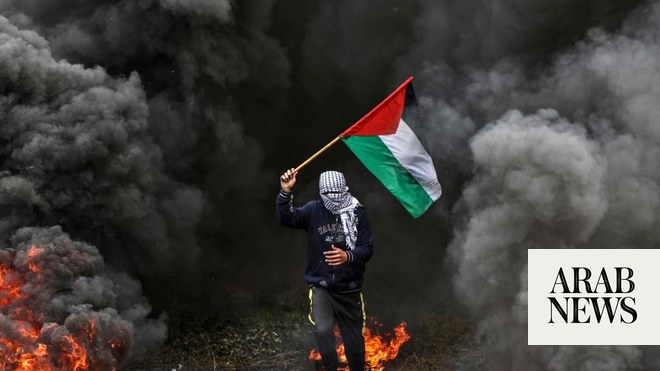
The White House has expressed concern over a week of riots in Northern Ireland, with Joe Biden joining Boris Johnson and the Irish prime minister in calling for calm after what police described as the worst violence in Belfast for years.
It came as police used water cannon against nationalist youths in west Belfast, as unrest stirred again on the streets on Thursday evening, with reports that officers later warned they could use “impact rounds” – also known as plastic bullets.
In a statement, the US president’s press secretary, Jen Psaki, said: “We are concerned by the violence in Northern Ireland” and that Biden remained “steadfast” in his support for a “secure and prosperous Northern Ireland in which all communities have a voice and enjoy the gains of the hard-won peace”.
She spoke as the Northern Ireland secretary, Brandon Lewis, called on political leaders across the spectrum to tone down their language to ease tensions.
Biden, who has Irish roots, has repeatedly expressed support for the peace process and last year waded into a row over UK plans to override parts of the Brexit deal, warning Boris Johnson that any trade deal was “contingent upon respect for the [peace] agreement and preventing the return of a hard border”.
Police said as many as 600 people had been involved in disturbances in Belfast on Wednesday, when a bus was petrol-bombed, plastic bullets were fired and missiles were hurled over a “peace wall”.
With parts of Belfast scarred and a political crisis brewing, the Northern Ireland assembly united in its condemnation of the rioting and agreed a motion calling for an end to the “deplorable” violence and support for the rule of law.
Boris Johnson and the Irish prime minister, Micheál Martin, spoke by phone on Thursday, called for calm, and agreed that “the way forward is through dialogue and working the institutions of the Good Friday agreement”.
Northern Ireland was plunged into crisis after violence escalated at the intersection between loyalist and nationalist communities in the Shankill and Springfield areas.
Police said rioters had thrown petrol bombs, bottles, masonry and fireworks, and a Belfast Telegraph photographer was attacked. Police fired six plastic bullets known as attenuating energy projectiles (AEPs) on Wednesday night. Eight officers were injured in the unrest and two men aged 28 and 18 were arrested on suspicion of riotous behaviour.
The Police Service of Northern Ireland assistant chief constable Jonathan Roberts said Wednesday’s mayhem “was at a scale we have not seen in recent years” and it was lucky that no one had been seriously hurt or killed.
Stones and fireworks were thrown at police by gangs of youths gathered on the nationalist Springfield Road on Thursday evening, close to where Wednesday night’s riots took place. Police deployed water cannon after protesters failed to disperse. Later in the evening, there were reports that police warned crowds “impact rounds will be fired”. The plastic bullets are not used as a means of crowd control in any part of the UK apart from Northern Ireland, and their use has been condemned by human rights groups.
Lewis was due to hold virtual meetings with leaders of all five parties in the Northern Ireland executive, including the Democratic Unionist party, Sinn Féin and the Alliance party, on Friday morning.
After touching down in Belfast, he said he had encouraged politicians to “think very carefully” about the language they used. He added: “Not just unionists, but if you look at the tweets and messages from politicians from all parties, they have put out messages that can be interpreted in a particular way as having a bit of spite to them.
“I don’t think there is any place for that. I have spoken to people across parties about that.”
He named no names, but public positions have become polarised over both the Brexit protocols for Northern Ireland and recent decision not to prosecute Sinn Féin leaders who attended a funeral in contravention of health restrictions. “I think we all have to be very clear about the fact that what politicians here say matters,” Lewis said.
There had been hopes that tensions could ease on Thursday as the Ulster Political Research Group, which is linked to the paramilitary Ulster Defence Association, called for an end to the violence, saying “street disturbances will not solve our issues”. The Loyalist Communities Council, which represents loyalist paramilitary groups, reportedly met on Thursday afternoon, but failed to reach agreement on a statement condemning the violence.












